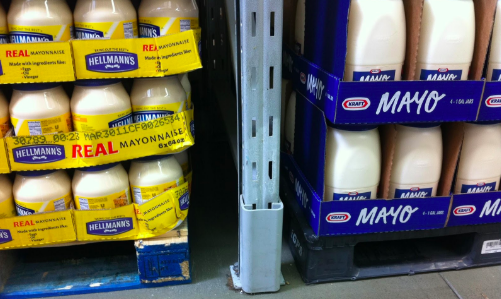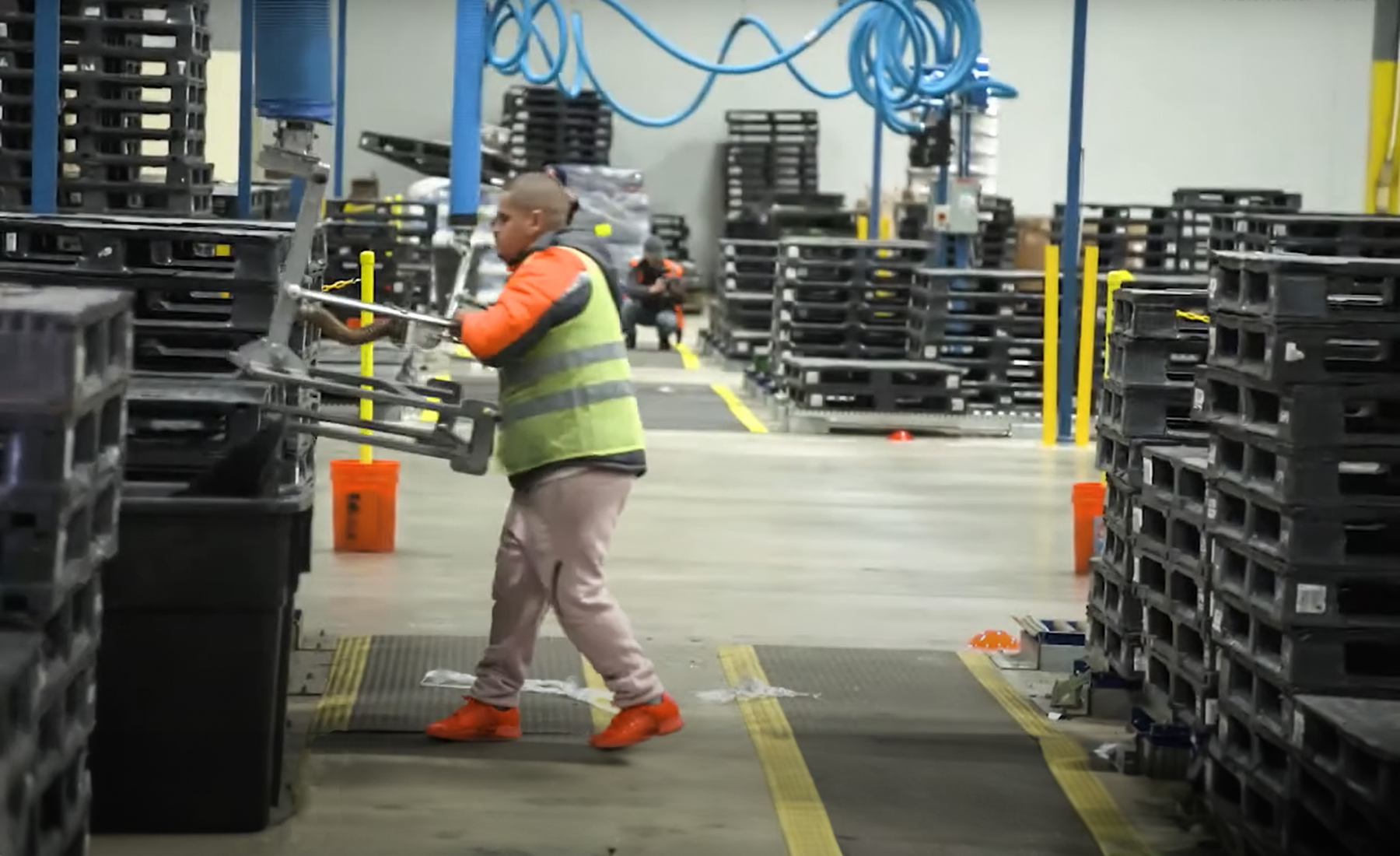This year could see tons of food recalled in the name of safety. As of April 6, all shippers and carriers of food should be in compliance with the new rules for sanitary transportation laid out by the Food and Drug Administration (FDA) as part of the Food Safety and Modernization Act (FSMA). The FSMA gives the FDA the power to perform inspections and even force a recall if it deems it necessary. With millions of dollars on the line, anyone involved in the food and grocery supply chain needs to ensure that they’ve fully complied. The alternative is potentially millions of dollars lost to a recall and a costly hit to your company’s reputation in the process.
FSMA food hygiene regulations are designed to keep food free from biological and chemical contaminants throughout its journey from farm to table. For example, FSMA regulations require that the water used to grow and wash produce has no detectable amounts of E. coli bacteria, and testing is still underway to determine the period of time farmers must allow between manuring their fields and growing their crops. However, possibly the most complex food hygiene regulations set forth by the FSMA are those governing the transportation of human and animal food. While a field or well is stationary and can be fitted with purification and monitoring equipment, a shipment of food on a pallet is mobile and handled by many people before it reaches its final destination. This opens up many opportunities for contamination along the way that could violate the FSMA. In this post, we’ll talk about how to stay compliant while transporting food and how one change to the equipment you use could make it much easier to follow FSMA guidelines.
FSMA Food Hygiene Regulations for Sanitary Transportation of Food
The rules laid out by the FSMA for the proper transportation of food are largely intended to close off avenues for contamination. A key part of the legislation is ensuring that all companies involved in transporting food devise a procedural strategy and have it approved by a third-party certified by the FDA. The FSMA gives the FDA the power to decide if these procedures are adequate, and to check facilities for bacteria or hazardous chemicals to ensure they are working. The FSMA’s transportation guidelines focus on a few main requirements.
- Sanitary transportation equipment: The design and maintenance of vehicles and transportation equipment cannot cause the food it transports to become unsafe. Vehicles and equipment must be able to be cleaned adequately for their intended use.
- Controlled temperatures throughout supply chains: Temperatures must be monitored and recorded during transportation to ensure they stay in an appropriate range for the food being delivered.
- Eliminated risks of cross-contamination: Contamination of ready-to-eat food by raw food—as well as the cross-contamination of food from chemicals and pathogens—must be prevented.
- Worker hygiene training: Employees must have training in safe food transportation and carriers must document all training.
- Accurate records: Records of implemented procedures and employee training sessions must be maintained for twelve months.
Complying with these rules is primarily about being aware of and in control of possible avenues of contamination. For carriers and shippers, this means being able to depend on and to sanitize the equipment used in moving food. Yet the entire grocery chain—along with most supply chains—is built around something prone to damage and difficult to sanitize: the standard GMA spec wood pallet. Wood has the propensity to absorb moisture, which means that pallets may become a refuge for microbes that have the potential to contaminate food. The porous nature of wood makes it tricky to completely sanitize wood pallets, and sometimes the chemicals used to clean pallets can themselves become the problem. In 2010, the McNeil Consumer Health Division of Johnson & Johnson was forced to recall lots of Tylenol due to a musty odor. It was the first of many recalls that went out that year, which ultimately cost the company millions of dollars in lost sales and caused incalculable reputation damage. The culprit in this case was trace amounts of a chemical called 2,4,6-tribromoanisole (TBA), the remnant of a fungicide used to treat wood pallets.
The wood pallets responsible for the incident came from the Dominican Republic and illustrate not only the difficulty of knowing that your wood pallets are safe for use with a sensitive product like food but also how easily an unexpected source of contamination can slip into the supply chain unnoticed. Wood pallets have proven to be a risk factor in the food industry, suggesting that the easiest way to meet FSMA food hygiene regulations is to remove wood pallets entirely from the supply chain.
Plastic Pallets Easily Meet FSMA Compliance Requirements

The non-absorbent nature of a plastic pallet means it won’t hold onto moisture, chemicals, or bacteria, making it easy to clean and easy to stay in compliance with FSMA regulations requiring sanitary equipment. Plastic doesn’t require the use of toxic chemicals or heat treatments to kill microbes, simplifying supply chain logistics and reducing the possibility of contamination of food by pesticides or fungicides used on wood.
In the cold chain, sturdy plastic pallets can help distributors and logistics workers comply with temperature control regulations by supporting heavy loads and by retaining their precise shape regardless of temperature changes.
The moisture-resistant surface of a plastic pallet also means spills and fluids from loads of food are easily noticed and removed from the supply chain to prevent cross-contamination of one food product by another. Durability also plays a role, as a plastic pallet won’t leave splinters and fragments behind that can cause cross-contamination of shipments in trucks or loading areas. In the cold chain, sturdy plastic pallets can help distributors and logistics workers comply with temperature control regulations by supporting heavy loads, such as ones using dry ice, and by retaining their precise shape regardless of temperature changes during transportation.
With new regulations in play, anyone involved in food transportation should be using the safest and most efficient equipment possible. Plastic pallets may cost more upfront than basic wood pallets, but the true price is far lower when all factors are considered, especially the cost of an unsafe food recall, which can result in the loss of the recalled goods, loss of reputation, and potential legal fees and fines if the company is found negligent. For businesses interested in the convenience of plastic pallets, a plastic pallet pooling program is one way to move to plastic without having to manage the supply and transportation of pallets as well as food products.
To make the switch to safer and more hygienic iGPS plastic pallets that can help your company stay compliant with the FSMA while reducing your Total Cost of Business, give our team a call at 1-800-884-0225, email a specialist at switch@igps.net, or visit our contact page to find out about our plastic pallet pooling program.
Image 1: Unsplash user NeONBRAND



